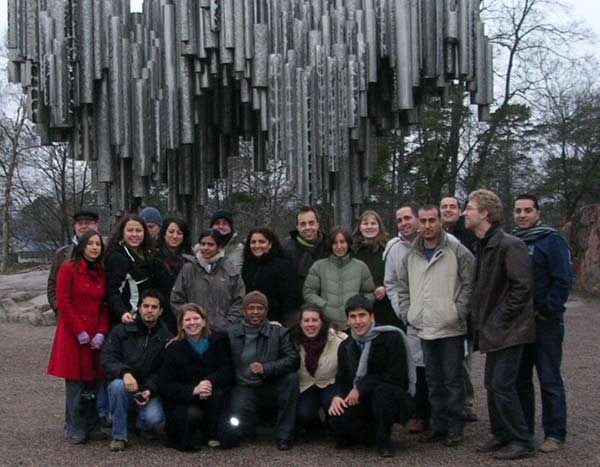While Europe’s carbon-footprint aware heads of states, their administrators, advisors, bureaucrats, translators and drivers have been preoccupied with two back to back summits in Lisbon and Brussels, smaller cogs in the EU machine have been whirring away less noisily. Across the same period I found myself attending a seminar organised by the Commission’s Youth Directorate as part of its flagship Youth in Action programme where the subject of “EU citizenship” was hotly debated by largely youth-worker practitioners from Turkey, Malta, Spain and our host nation Finland. I was the sole UK attendee tackling two words that don’t figure much in most young Brits’ consciousness.

In mixed break-out groups aided by flipcharts, 26 of us bright young things were asked to define common European values, reflect on identity and sketch out ways to increase participation in democratic culture across Europe. Everyone had a national tale to tell. We learned that, like in the UK, turnouts are falling in Finland: to the point where it is feared it threatens to dip below 50% at general election level. Conversely current participation figures run at 90% of young voters in Turkey. “You have everything here. There is nothing to fight for,” a (literally) Young Turk said accusingly to the Fins referring to their generous welfare state. “We vote because we are angry”, he explained. Continual rejection for EU membership translated into palpable frustration for the Turkish contingent, for having to go through extra needless paperwork and Visa applications in order to be with us amongst other things.
The biggest barriers identified to feeling European however were attitudinal and cultural rather than bureaucratic and legal: localised petty nationalism and the perceived lack of relevance of EU institutions were named. Several clichés were bandied about like the contention that “youth is the key” to reversing this state of affairs. Yes European co-operation has kept the post-war peace but 1945 is a different era to that inhabited by today’s Euro-youth. Seminar participants were fluent in Euro-speak: learned at the altar of MTV and from policy documents like the EU’s white paper on youth. All had attended this type of happening before: a chicken-egg situation. Perhaps the more hard-to-reach, like ASBO estate kids, should be targeted by these initiatives but then by definition they’re hard-to-reach.
The influential German Sociologist Ulrich Beck has recently written that Europe is the “most misunderstood thing in the world” and that it is not a fixed condition but “an open political project; highly differentiated, politically animated and flexible.” Certainly while we have seen EU Commissioner Peter Mandelson openly critical of the Brown regime’s attitude to all things European, despite non-entry into the Euro-zone the Blair government never refrained from using Europe when it suited them; numerous achievements it trumpeted as its own originating from the UK’s signing up of the EU Social Chapter such as increased maternity and paternity benefits and the working time directive offering holiday pay to all.
European citizenship is something of a tricky can of worms/minefield/pandora’s box for all its social, political and cultural dimensions. One seminar group stated that it is “more active when you’re away” and urged us to go to the US if we really wanted to discover what it meant to be European. Yet language is a huge culturally binding agent and many “real” British youth probably feel they have more in common with transatlantic cousins than the geographically much closer French. Our island geography contributes to the Brit insularity that produced the startling un-PC and thankfully now forgotten phrase “wogs start at Calais”. I personally think it’s regrettable that foreign languages are no longer compulsory in English schools but it’s also understandable: by default bastardised English is the 21st century lingua franca of communication. Esperanto, the laboratory language Eurocrats once envisaged we’d all be speaking in by now, never took off – underlining how “culture” is an organic and evolutionary process up for grabs. As for being invited somewhere as a “youth” at 35, after a lifetime of wanting to be older I can finally say I’m flattered.
Dr Rupa Huq is a Senior Lecturer in the School of Social Sciences at the UK’s Kingston University where her research focus is on youth culture. She has written for the Times Higher Education Supplement, the Tribune, New Statesman, Progress magazine and Red Pepper and has appeared on Channel 4 News and BBC News 24. She also maintains her own blog.
Further Reading on E-International Relations
- Opinion – The Power and Peril of the Youth Bulge: Nepal’s Gen Z Protests
- Opinion – The Return of Culture in Democracies
- The Diplomat: Gender and Security in Popular Culture
- Opinion – ASEAN’s Diplomatic Culture and Strategic Adaptability
- Geopolitics for EU lawyers
- Visual Culture and Outer Space Futures